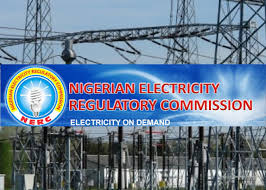We capped estimated billing to protect consumers — NERC

Nigerian Electricity Regulatory Commission (NERC) yesterday said the federal government introduced the capping order on estimated billing for unmetered customers to ensure fairness and parity with their metered counterparts.
The commissioner in charge of Legal, Licensing and Compliance, Mr Dafe Akpeneye, said at a web conference organised by PricewaterhouseCoopers (PwC) that since the Discos failed in their responsibility to meter customers, the only option was to resort to estimation.
He spoke just as the federal government handed over the Afam Power Plant in Oyigbo Local Government of Rivers State to Transcorp Power Consortium, which emerged the preferred bidder of the power asset, with a bid offer of N105.3 billion.
However, Akpeneye described the development as temporary, noting that no customer should pay more than their metered neighbours in the same vicinity and under a similar classification.
He said: “The issue of estimated billing came about as a bridge to manage the interests of the utilities’ interest of providing power and the customers’ interest of paying for power.
“Under an ideal situation, the meter is an assurance that the utility should get paid for what it delivers and the customer pays for what he consumes. But we have found ourselves in a situation whereby when the assets were handed over, metering wasn’t a priority when the utilities were owned by the federal government.
“And if you look at the Nigerian demographics, with the way the population is expanding, rapid urbanisation with new connections coming to the grid, the metering of these customers has become a problem.
“One of the key requirements is for the Discos to bridge the metering gap because the problem we had to deal with was because of their inability to do that on time. We had to balance the fact that customers receive power without meter and devise a way to make sure customers have electricity without having a meter.
“Therefore, the estimated billing methodology was introduced . But that was supposed to be temporary, certain things were not done. So, estimated billing became the number one consumer complaint in the industry.”
The NERC stated that exiting the estimated billing regime is impossible for now, adding that since it is not practicable to meter everyone at once, the practice will continue for a while until the issues are resolved.
“Because we realised that meters can’t be rolled out for everyone, something had to be done to balance it out. Some measure of fair estimation had to be put in place.
“The commission developed the capping order. What this seeks to try to create is parity between metered customers and unmetered customers. So, we have someone who lives in a duplex in a certain part of town who is unmetered and we created a scenario whereby one who is unmetered does not pay more than the metered, so that they both pay almost the same thing,” he added.
In his intervention, the Director General, Bureau of Public Enterprises (BPE), Mr Alex Okoh, said the privatisation of the power sector in Nigeria remains the most ambitious of its type in Africa.
According to him, though the sector is not where it should be because of lack of investments, it has improved since it was handed over to private individuals to manage.
He said: “South Africa has 4,904 kwh per capita while Nigeria has 300kwh per capita. Now for the biggest economy in Africa, that says a lot.
“This sort of challenges prompted the bold decision to reform the power sector. So, in 2005, ESPRA was enacted and essentially was geared towards breaking the monopoly of NEPA.
“It was also to make the sector attractive. That particular action led to the unbundling to Gencos, TCN and Discos. Prior to this , electricity was generally poor. We are talking 1,500mw across the value chain.
“Post-privatisation, we have seen significant improvement and impact of privatisation of the power sector. We are just 10 years.
“There are interventions that are currently going on to correct some of the shortcomings of the privatisation exercise. Let’s not also forget that the power sector privatisation in Nigeria is perhaps the biggest privatisation programme in the continent of Africa.
“Were we rather overambitious in this privatisation. I don’t think so. Could we have taken a modulated approach to it? Maybe. But I think the decision was bold to address the lack of investment in the sector.”
In his remarks, former Minister of Power, Prof. Barth Nnaji, said government must strive to draw private sector investment to ensure sustainable supply of power.
He stated that with the right environment, the Discos can conveniently pay for power, as was shown by Eko and a few others at a point, adding that the bulk trading arrangement should be jettisoned once the Discos become credit worthy.
